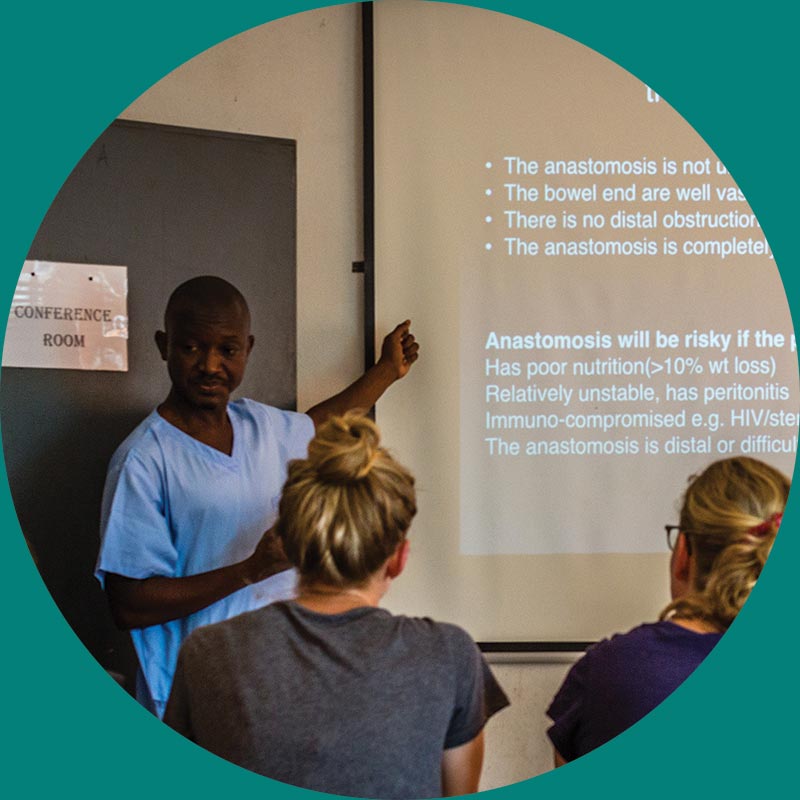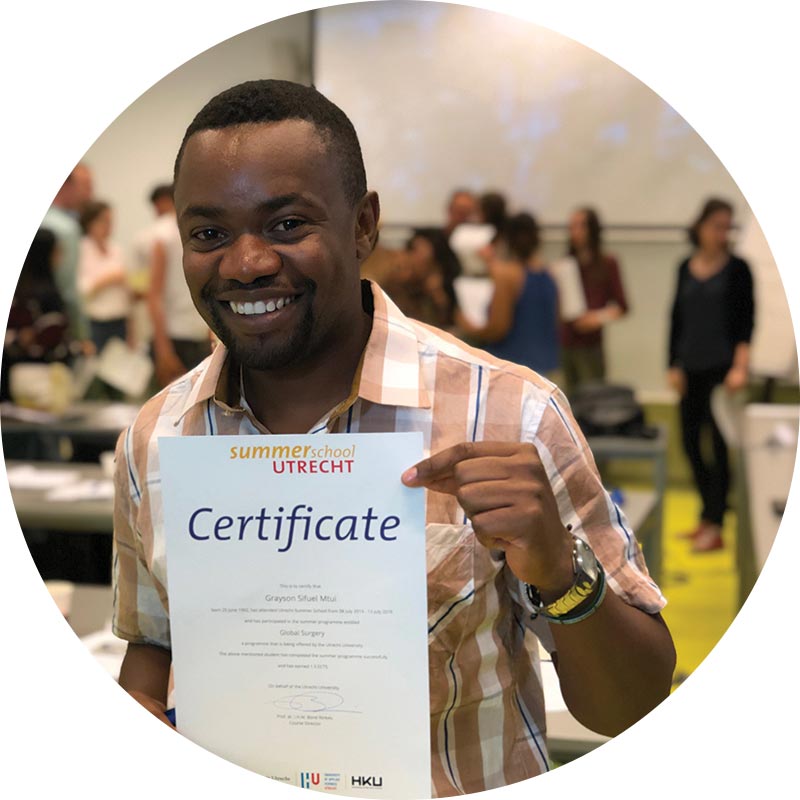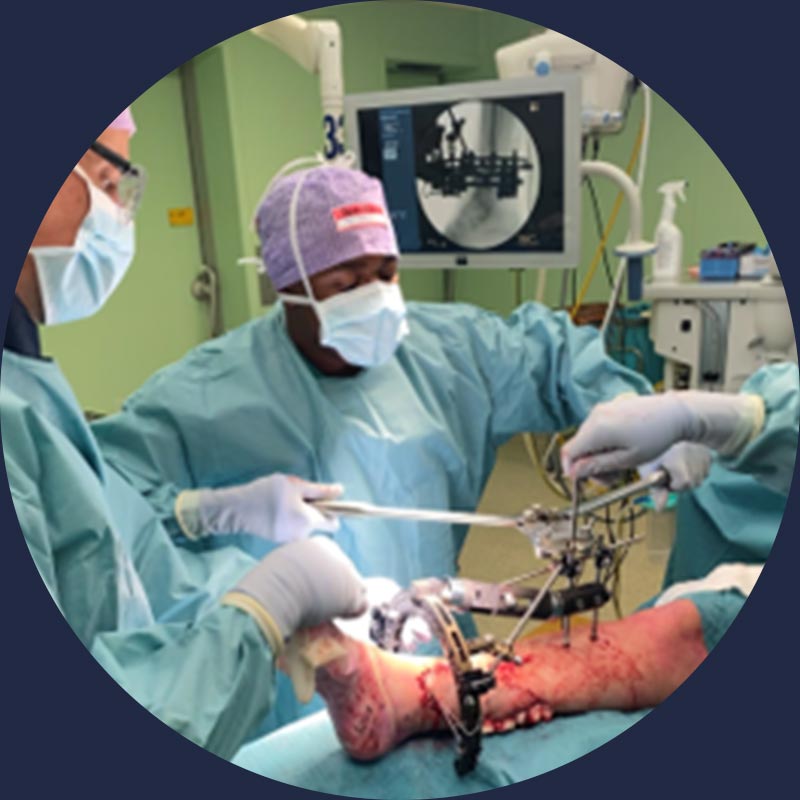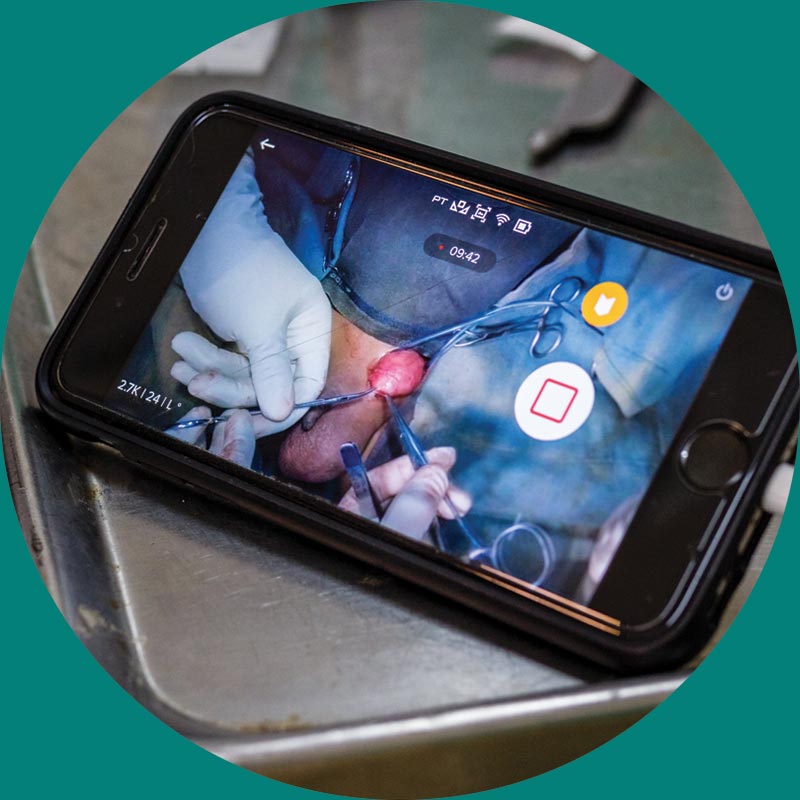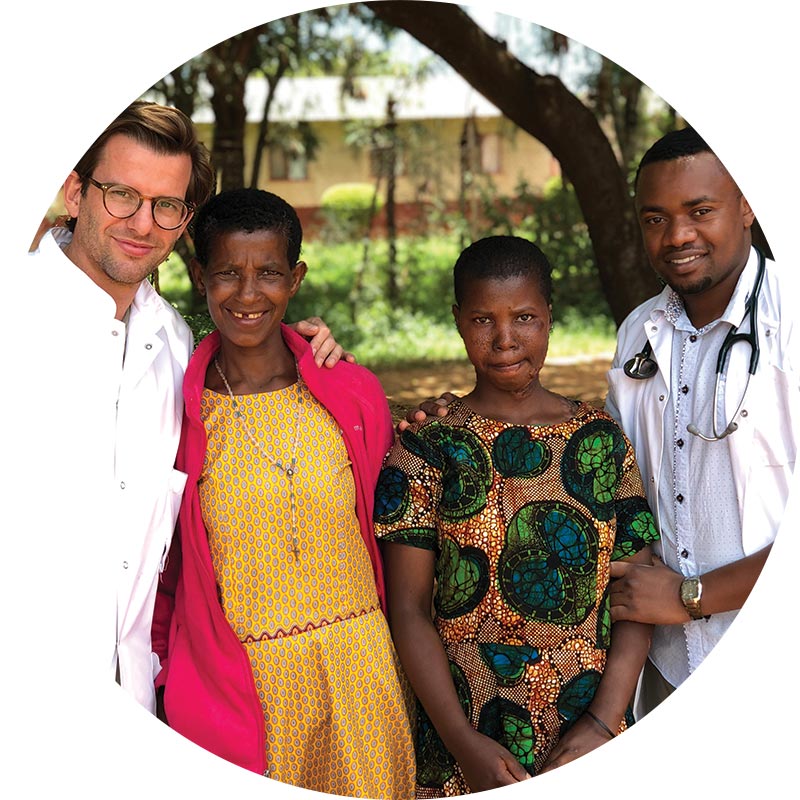Through extensive experience in the field of global surgery, GSA has developed five essential pillars we use to promote sustainable efforts in global surgery that can help close the gap in surgical care in LMICs.
Our Approach
Local Ownership
Work with a local partner that has ownership over the problem and feels the responsibility to meet the goals set by both partners.
Bilateral knowledge exchange
Teaching is the main activity for visiting surgeons. Use the opportunity to build capacity and provide local health care workers with bedside and classroom trainings.
Research
Perform research to assess the local need and to evaluate the impact of activities. When performing surgery with the local team, analyse and evaluate surgical outcomes and complication rates and adjust program planning accordingly.
Technology
Increased internet connectivity allows for stronger communication between the local team, members of the surgical mission, and colleagues in referral hospitals. This can decrease professional isolation of the rural surgical team and ease the referral of patients when needed.
Collaboration
Surgical expertise is just one of the elements that are important to improve surgical care. Always strive to collaborate intensively with partners that have additional expertise that may be required, e.g. public health specialists, economists or organizational experts. Building successful sustainable partnerships requires an understanding of local social and cultural norms as well as the power dynamic between LMICs and HICs.

